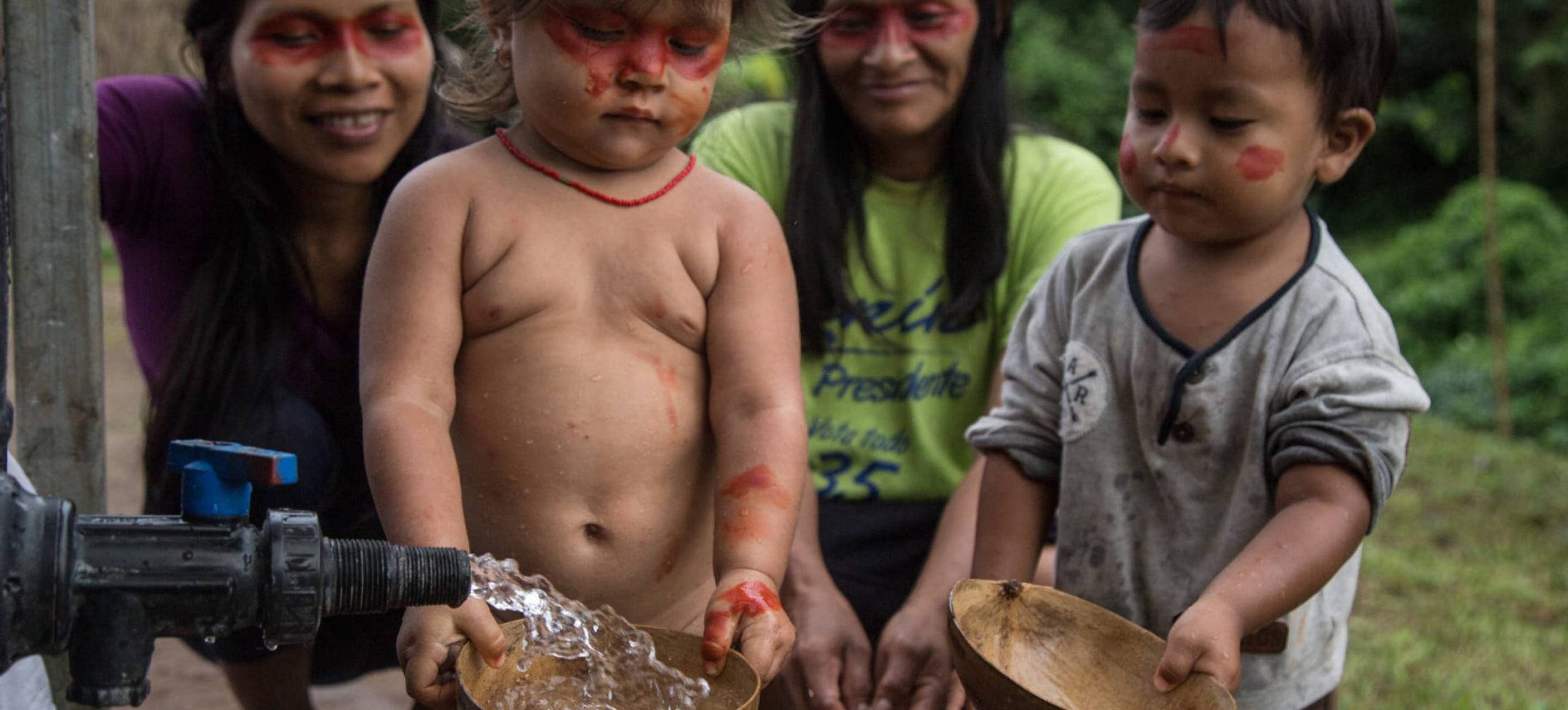
The Waorani, who currently number around 2,000, once maintained one of the largest territories of all indigenous Amazonians in Ecuador, within the modern provinces of Orellana, Napo, and Pastaza.

The History
The Waorani, who currently number around 2,000, once maintained one of the largest territories of all indigenous Amazonians in Ecuador, within the modern provinces of Orellana, Napo, and Pastaza. They traditionally lived as nomadic hunter-gatherers in small clan settlements. Missionary groups relocated many Waorani families into larger communities with the purpose of converting them to Christianity.
The Waorani are the most recently contacted of all Ecuadorian indigenous peoples, first reached by an American missionary group in 1958. Since first contact, the Waorani have experienced a rapid and difficult insertion into modern society. Their territories have been greatly reduced, and their remaining lands impacted by logging, oil extraction, and colonist settlement, among other issues. Several Waorani groups have thus far rejected contact and continue to move ever deeper into the forest.
Oil activity and the construction of oil roads have been severely detrimental to Waorani lands. Despite the location of several Waorani communities within Yasuní National Park, living downriver from oil operations has still drastically affected these communities and their water supply. And the Ecuadorian government has begun drilling for oil in Yasuní, threatening even the Waorani living under the supposed protection offered by the National Park.
The Future
Ceibo’s Waorani Team is supporting Waorani communities’ efforts toward territorial defense through the expansion of its pioneering territorial mapping program and through legal accompaniment that provides communities with the information and tools necessary to effectively manage their territory and resist the entry of oil operations. Ceibo believes that its territorial defense work has the power to unify the Waorani Nation, empower women and elders in community decision-making processes, and protect hundreds of thousands of acres of standing primary forest from destruction.
Part of this integrated effort lies in providing safe, drinkable water to Waorani who live in extremely remote areas of the Amazon rainforest. The commencement of oil operations in Yasuni National Park heightens the need to provide rainwater catchment systems given that the government’s plan will undoubtedly endanger many families’ access to clean water.
Combined with the installation of renewable solar energy systems, Ceibo’s Waorani Team is strengthening remote Waorani communities’ ability to maintain their traditional way of life and make choices based on the long-term survival of their families, culture and forests.
Ceibo also collaborates directly with AMWAE, a Waorani women’s association with approximately 300 active members, by providing organizational development support to the association and by contributing to the planning and execution phases of AMWAE’s work with traditional crafts, cacao cultivation, and production of AMWAE’s own brand of WAO chocolate.



